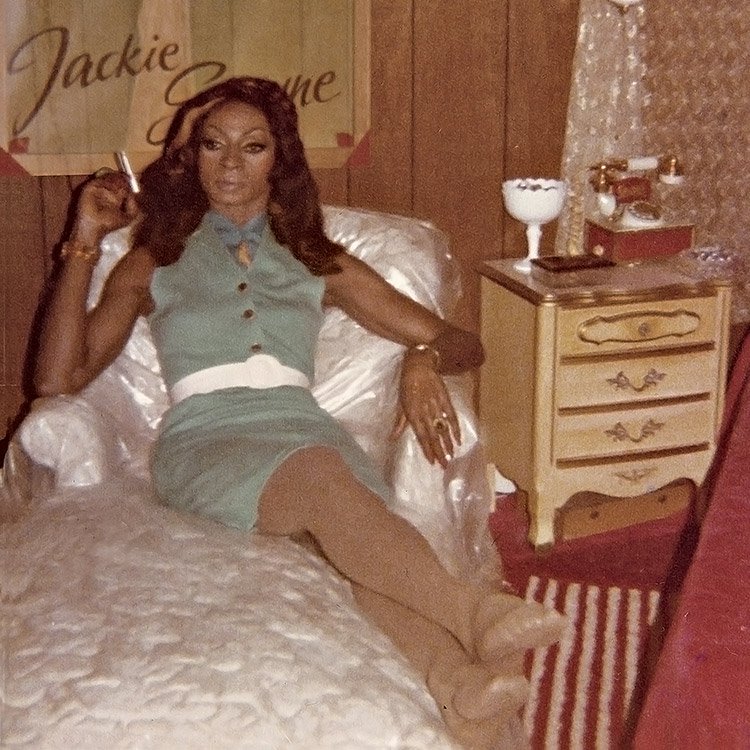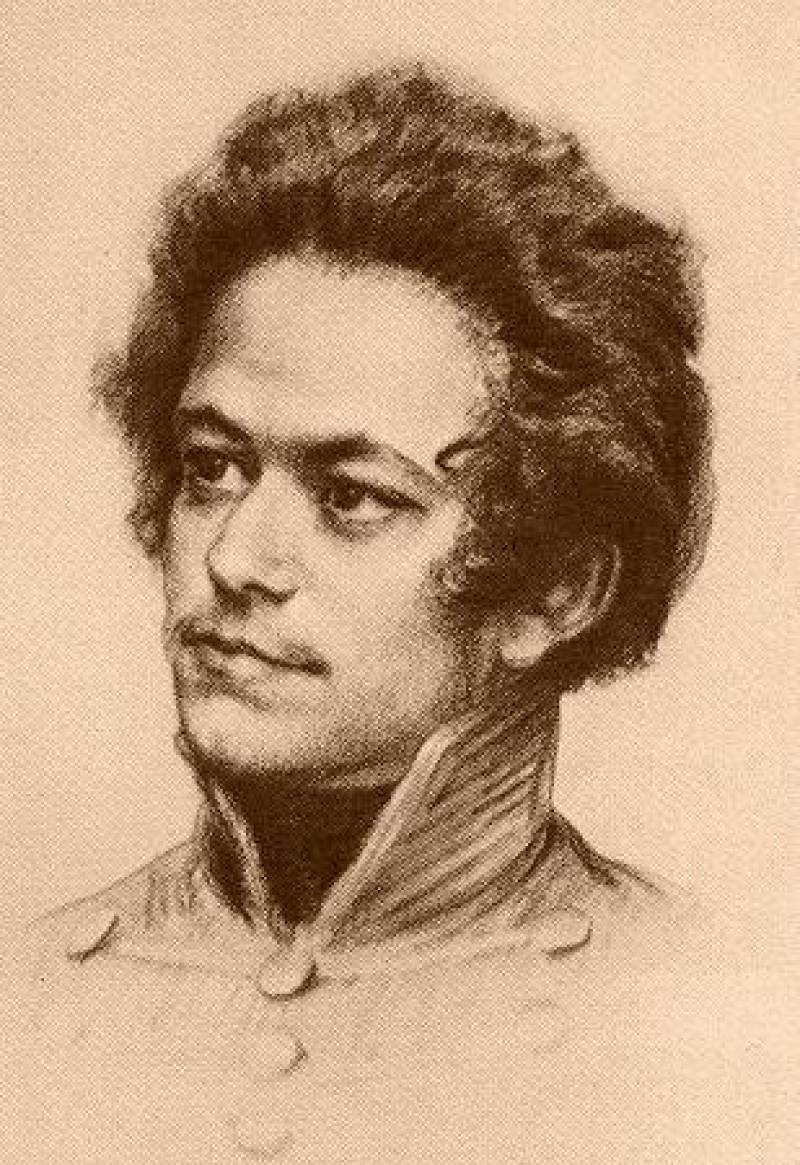These illuminated poems appeared in Red Wedge #6, “In Defense of Transgression.”
Read moreThe People's Vote + Notre Dame
Let it have no known leader, the campaign. / Let it be led by cool fresh water, clearer and sweeter, / f ollow the ringing out, we, across the tunnel walls to light, / backs straightened, blinking in the rain.
Read moreWhat's Next?
Artists today are also caught in the Neo-Liberal expectations of competitive self-promotion, which generally exclude the disabled, economically-disadvantaged, lower-classes, aging, female, gender and/or identity non-conforming. The expected commodification of an artist's work and life is profoundly alienating to anyone who doesn't fit, into either mainstream society or mainstream artists' societies. But there have to be spaces for all art; as there has to be a place at the table for all peoples, or it is no longer art (but an extension of imperialism).
Art, Music + The Return of the Crowd
The following audio is from the Red Wedge panel, “Art, Music and the Return of the Crowd” at Historical Materialism 2017 in London, featuring Adam Turl on “Fascist, Neoliberal and Socialist Aesthetic Leveling,” Alexander Billet on “Shake the City: Space, Time, Music, Crisis” with Holly Lewis.
Read moreRecreating 1917
The following audio is from a Red Wedge panel discussion held at Historical Materialism London in 2017, featuring Neil Davidson on “Lukacs, Greenberg and the Spectre of Trotsky,” Crystal Stella Becceril on “Affirming the New: Art of the Mexican and Russian Revolutions,” and David Mabb on “The Three Crosses.”
Read moreRed Wedge at HMNY: “Socialism in Our Time”
We have sponsored two panels at “Socialism in Our Time.” Taken as a whole, the speakers at both panels aim to resuscitate what is deemed merely a leftover, an obscurantist folk practice, a popular song, a cultural sensibility. We question standard accounts, for example, of “outsider art” or simplistic sociological accounts of counterculture. Our panel participants are visual artists, experimental musicians, queer activists, educators and critics. Put simply, we enter the hidden abode of cultural production from a wide variety of standpoints and a shared commitment to the communist project.
Read moreCaught On a Limb: Critique After Christchurch
Marxist cultural criticism, by its nature, walks the tight rope between the Scylla of purely instrumental and didactic analysis and the Charybdis of descriptivism and romanticism. Yet there are times in which Marxist cultural critics must make directly political interventions, emphasizing that indeed we are, in Ash Sarkar’s inimitable phrase, literally communists. This was what gave rise, for example, to Red Wedge statements in support of many of the struggles of the last few years.
Read moreArboreal Compilations
These compositions are the latest in a growing body of work exploring connections between humans and nature in contemporary society. I work part time in the shipping department of a small company, and witness a surprisingly large amount of paper waste. As an artist, and avid environmentalist, I couldn’t bring myself to throw away the paper left behind from generating shipping labels. This paper contains a waxy coating, allowing the sticky label to be removed easily while preventing easy recycling. These mixed media works consist of photographs printed on those label backings.
Read moreWages for Housework and Other Necessary Labor
The Eclipse (El Eclipse) by Lola Alvarez Bravo.
this face
that cannot
imagine the sweetness
of reciprocity, begs
for release.
Dreams + Ruins
Paradise Lost
My paintings are figments of fantastical imaginary worlds situated within realms, which allude to our own existence. The imagery I use comprises unravelling narratives, which display splayed visions and altered expressions of the world around us. Themes stemming from theological backgrounds have direct imagery taken from the Book of Genesis and the Book of Revelations.
I attempt to create a new space and time within the painting, asking the audience to question what they see and from where they are seeing it.
Read moreOutsider Art Is A Lie
Ralph Fasanella, New York (1957)
The concept of outsider art, or self-taught art, is a lie. It conceals the actual artistic arguments and content articulated by the artists who are described in this way. While the history of the concept is more complicated, its present usage is bound up with a racial, class and geographic othering, which centers the bourgeois and petit-bourgeois institutional art world (located in New York City first and foremost) as the norm (when it is itself the outlier).
Read moreThe Total Art of Neoliberalism
This video was presented as part of the Red Wedge stream of panels at the Historical Materialism conference in London last November. Its author, Red Wedge editor Adam Turl, was unable to attend as he got sick at the last minute, but the video was well received. It is based on Turl’s article, “The Work of Art in the Age of Digital Reproduction” in Red Wedge #6, “In Defense of Transgression.” That article begins as follows:
Social media asserts a massive multi-subjectivity. This is a conundrum for those who aimed to speak to/on behalf of the masses (for good or ill). It is a disaster for those who thought that without overdetermined capitalist media the masses would embrace their own emancipation, beauty and pathos.
Read moreAesthetics and Politics? Shit, Man…
It happens that nowadays making political music is often considered gauche, and everything needs to be dressed up in nine layers of irony in order to be considered legitimate. Ironic detachment is itself an attitude and aesthetic born of a feeling of political impotence against a backdrop of rapid technological change and the immense, constant, and overwhelming deluge of contradictory information. Like it or not, artists must grapple with this ironic detachment and find ways to appeal to or circumvent it.
Pandering to that ironic detachment is risky, because the work will just get lost in the wash, or will reinforce a detached affect that defuses political power.
Read moreAn Avant-Garde Defense of Nicolas Cage
Sitting at a piano, decked out in Ray Bans and a black suit, Nicolas Cage sings his heart out about “Pachinko”. A sort of cross between a slot machine and pinball, Pachinko is, like your favorite late seventies rock band, big in Japan, indeed it is part of the fabric of modern Japanese capitalism. Gambling is illegal in Japan, yet Pachinko is tolerated. Instead of winning money at Pachinko parlours, players are awarded golden tickets which are thus exchangeable for cash at other locations affiliated with the parlours themselves. The industry, targeting poor and working-class people not unlike video terminal gambling in North America, is primarily staffed by ex-police.
Read more"Bring Back Rock Against Racism" ... But How?
There Ain’t No Black In the Union Jack by Ruth Gregory.
In August 2018, Labour’s John McDonnell called on Twitter and then in a press release for the relaunch of the Anti-Nazi League. Citing the success of Tommy Robinson and Boris Johnson’s Islamophobic likening of Muslim women to letterboxes, the shadow chancellor said, "Maybe it’s time for an Anti-Nazi League type cultural and political campaign... The ANL pioneered highly influential cultural movements like the Rock Against Racism, which attracted tens of thousands of people of all ages to anti-racist festivals and protests.” The response was predictably partisan: the New Socialist was in favour, Dan Hodges against. Stephen Pollard, editor of the Jewish Chronicle, complained that McDonell was plotting against parliament. ‘McDonnell believes – and says so – that true democracy is on the streets. This seemingly well-meaning tweet needs to be seen in that context. In government, ‘the street’ would be a key weapon in the hard left armoury.’
Read moreRed Wedge #7: Call for Submissions
Red Wedge is pleased to announce a call for submissions for our next issue, intended for release in late spring of 2019. The theme of the issue, our seventh, is fifty years since the 1960s.
Decades are fictions, albeit useful ones. Same with anniversaries. When we mark time and look back, we can either wallow and anesthetize, or cast an eye back to the present, colliding the two in such a way that the tension reveals a future.
Read moreA Different (Hot) Take on Kon-Mari and the Working Classes
Ode to Joy?
The internet has caught the Kon-Mari virus. While the book was already a huge best-seller, nothing is really big these days until it hits Netflix, and the TV series of the Mari Kondo getting people to carefully curate their possessions has got everyone talking, and her name has become a verb: kon-mari. Is it reactionary garbage? While Kondo’s brand of de-hoarding is super specific and not even necessarily minimalist, its certainly caught up in the same trends of #minimalism, tiny houses, and getting rid of all your material possessions so you can put them in a backpack, travel the world and work on your laptop trends. Is this stuff actually a bunch of reactionary nonsense? Is it the aesthetic of the condominium industry? Can poor and working class people afford to get rid of their stuff?
Read moreSword Swallower (somewhere in the middle of the Atlantic)
Sol Niger by Leonora Carrington, 1975.
I spent a year as a sword swallower
Moaned your name through the scar tissue
Closed my eyes and imagined the crows
Feet that form around your eyes when you
Smile (Achilles heel turned broken ankle).
I wanted you to tell me more about G*****
(You were impressed that I could find it on a map)
Fuck Your Decorum
The US Capitol rotunda. An upward funnel of wealth.
We don’t need to listen all that closely to hear the voice of right-wing reaction lately. But over the past few days its questions have been particularly and flagrantly silly. “How dare these brown women swear? How dare they dance? How dare they dress in ways that go against our expectations? And how dare they think they can now walk the halls of Congress? Who do these socialists think they are?”
For sure, all aesthetic standpoints are political, and especially in the United States. This is after all a country where the far-right gained a level of influence it hadn’t seen in sixty years through the election of a reality TV star.
Read moreThe Poverty of Descriptivism
Karl Marx writes in Estranged Labour* that, accepting the presuppositions underlying political economy as it existed at the time of writing, one can see that there is a hell of a lot missing. There is something to it – but it is insufficient. As Marx writes, political economy “expresses in general, abstract formulas the material process through which private property actually passes, and these formulas it then takes for laws. It does not comprehend these laws – i.e., it does not demonstrate how they arise from the very nature of private property.”
One can say the same thing about the dominant form of writing about popular music. It can provide you with consumer knowledge with perhaps a tad more (but only a tad) than an algorithm.
Read more









